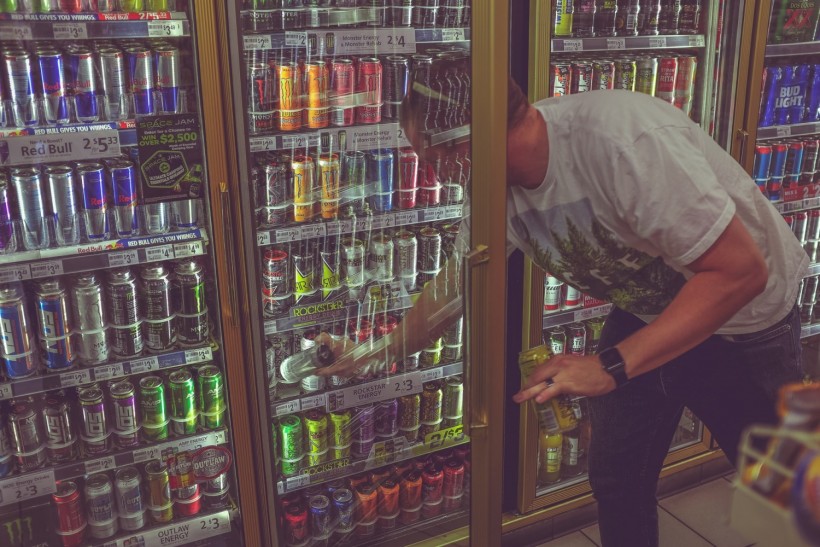People are now looking for quick energy boosters in an age where everything is available instantly. People may suggest that you gulp down a bottle energy drink to do this. This refreshing, bright-colored beverage is advertised as an energizing and refreshing drink. Is that true or a hoax? Our advice is to avoid energy drinks whenever possible. Although you may believe you are giving your body the right fuel, you could actually be harming your body in many ways.
In Europe, energy drinks were first introduced in 1987. Their popularity has not diminished since. They are increasingly popular worldwide, which has raised concerns about their effects on young people. Energy drinks can contain stimulants and caffeine, which increase alertness and concentration. Some studies have shown that energy drinks can cause serious health problems.
1. Caffeine Overdose
Energy drinks are high in caffeine. This is a major concern. 16 ounces can provide 200 grams of caffeine, which is not the most. You could get as much as 500 grams. Overdose of caffeine can cause hypertension, palpitations and calcium deficiency.
2. Sugar Overload
Caffeine is not the only problem in energy drinks. They contain a lot of sugar as well, which can cause tooth decay and weight gain. A 16-ounce bottle of black tea provides some 24 grams of sugar, whereas an energy drink may provide up to 70 grams of sugar!
3. Weight Loss
A high intake of caffeine can be accompanied by a large amount of sugar. Ironically, a drink that has a sporty appearance may cause obesity due to high sugar levels. A 16-ounce energy drink contains 220 calories. It can also increase your risk of developing type-2 diabetes.
4. Anxiety
This effect can be caused by genetic variations in some people. People who drink energy drinks frequently can experience anxiety if there are any variations in their adenosine receptors. The high caffeine content in energy drinks can cause anxiety.
5. Dental Problems
Sugary energy drinks can cause dental problems. These drinks can cause tooth enamel to deteriorate, which can lead to hypersensitivity, erosion, and cavities.
People who drink energy drinks frequently can have tooth problems.
6. Kidney Damage
People who have diabetes or kidney disease are at risk of developing complications due to high levels of caffeine in these drinks. A study found that 16 ounces of an energy drink is equivalent to drinking four cups of coffee, three cups of tea or five cans of Coke.
7. Weakness and Dehydration
You can get an energy boost by drinking energy drinks. People drink it while working out or playing sports. Drinking these drinks without fluids can lead to dehydration. These drinks contain high levels of caffeine, which can cause your body to lose fluids.
8. Spasms and Muscle Twitches
The body may experience muscle cramping or erraticism if it is exposed to caffeine in excess or for a prolonged period of time.
9. Speech Thoughts and Speech
In addition to many other senses, caffeine stimulates the brain and makes speech and thinking faster. This can help with concentration but can also cause confusion and stuttering.
10. Heart palpitations
Caffeine stimulates your central nervous system. Caffeine increases heart rate and can cause palpitations or fluttering. This can cause other issue later in life.
11. Gastrointestinal Disturbance
Caffeine works as a laxative, increasing the contraction of the small and big intestinal muscles. This can lead to predigested foods being absorbed into the intestine and triggering stomach cramps.
12. Erectile Dysfunction
The National Health and Nutrition Examination Surveys (NHANES) found that men who consumed the caffeine equivalent to two to three cups per day were less likely have erectile dysfunction.
In overweight or obese men, and in men with high blood pressure, the link between caffeinated drinks and ED was strongest. Men with diabetes didn't see any ED-related benefits from caffeine.
The majority of men in the study consumed coffee or soda as their primary source of caffeine. A smaller percentage of men drank caffeine-rich teas or energy drinks, while a much larger number consumed caffeinated teas.
13. Addictions
Caffeine addiction is another side effect of energy drinks. It is possible to feel the need for energy drinks before you start your workout. This can lead to a decrease in your ability for you to function on your own.
14. High Blood Pressure
This is a common side effect of caffeine. If you have existing medical conditions or any heart diseases, this can be a big problem for your health.
You should avoid them completely before going to bed. If you drink energy drinks at night time, your sleep will be disrupted.
Takeaway
The energy drink industry is booming, with an estimated $57 billion in sales globally in 2020. But are these products really giving your body the right fuel? If you think so, you could be harming yourself in many ways. It's important to know about all of the side effects associated with drinking too much caffeine and sugar before making this decision for yourself or someone else. Our advice is to stay away from energy drinks whenever possible - they might not be as energizing or refreshing as you think! Do any of these potential risks sound familiar?
* This is a contributed article and this content does not necessarily represent the views of sciencetimes.com















